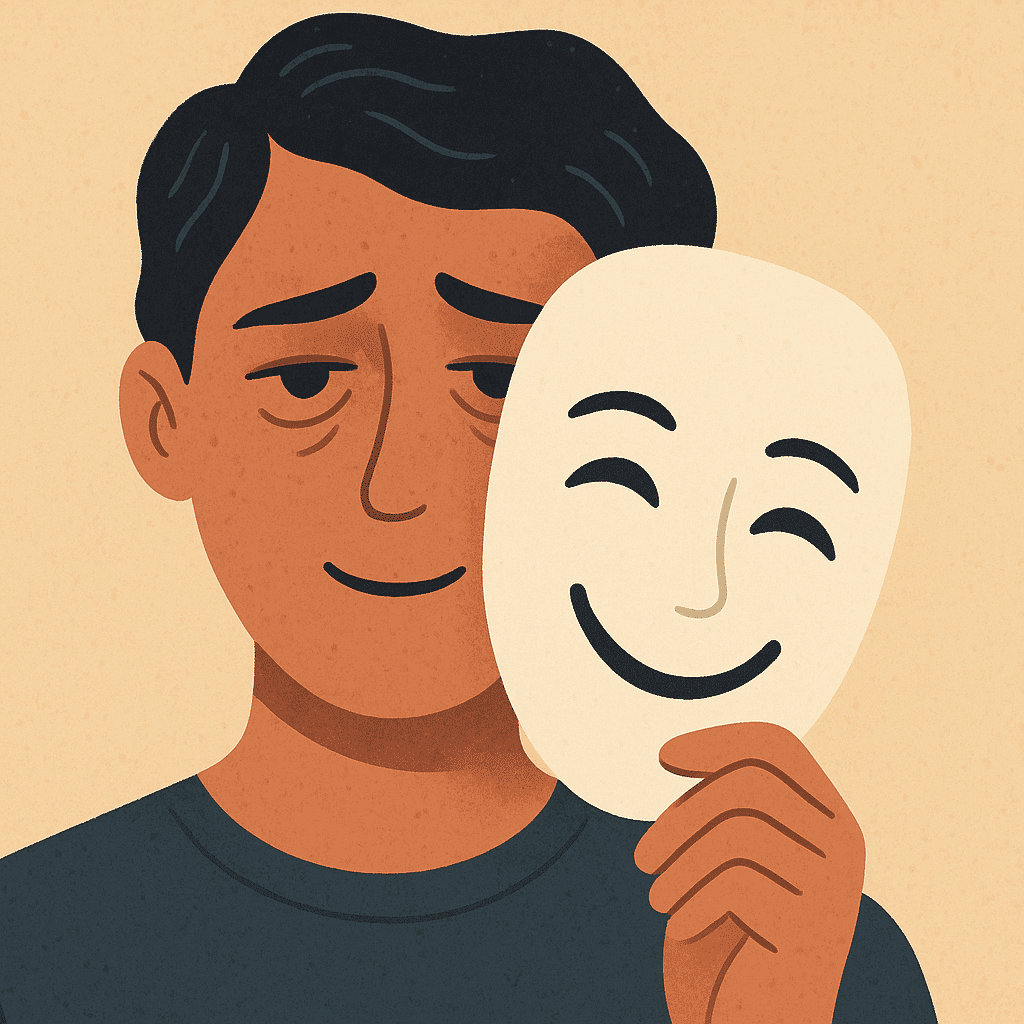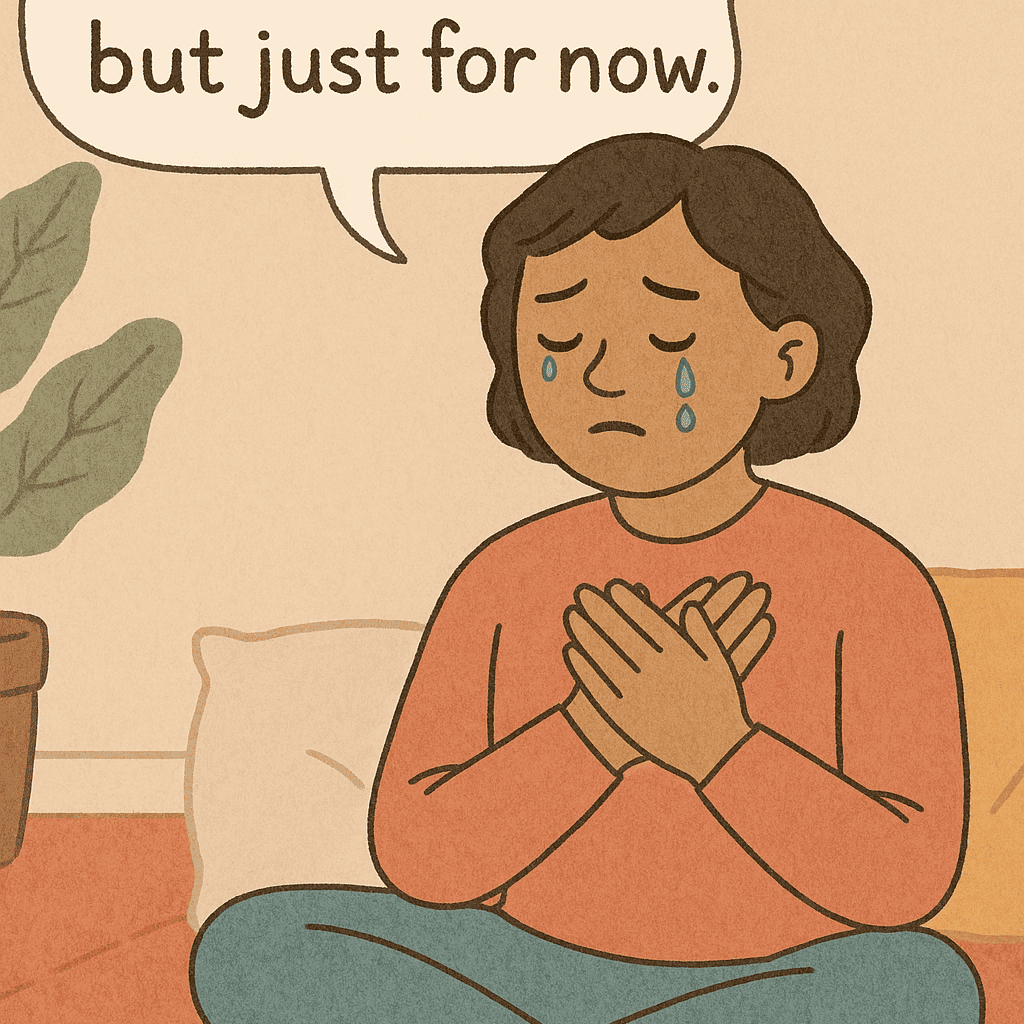There are some days where you just don’t feel okay. You feel tired, sad, anxious, or like something is wrong but you just can’t quite put your finger on it. Yet still when someone ask the most asked question “how are you”, you smile and say, “I am fine.” All because in the current dispensation we live in, people prioritise strength, smiles, and success, and it may feel shameful or weak to admit when you are not okay.
What if not being okay is simply part of being human?
Yes, life can be weary sometimes, confusion may set in, and you do not even know which part of the life you are in the moment. But pretending you are okay does not get rid of the pain, it only makes it harder to endure. It is okay to say, “I am not fine or I’m not okay”. Sincerely, that is often where healing begins.
The Pressure to Always Be “Fine”

Modern culture often promotes emotional perfectionism. We are praised for being resilient, productive, and upbeat. But this is a high-risk mentality. By suppressing pain or putting on a mask so others will not feel pain, we are lying about our own emotional truth.
The American Psychological Association found that nearly 77% of employees report feeling emotionally exhausted, yet only a fraction of them seek support. Why? Because saying “I am struggling” still feels risky at work, in school, and even at home.
This is echoed in The University Pressure: My Life at the University of Cape Coast, where the author shares the emotional toll of hiding mental distress within a performance culture. This story reminds us that behind the quiet smiles, people are really fighting battles they are not talking about.
Emotional Struggle Is Not a Sign of Weakness
Experiencing emotional struggle is not a character flaw. Stigma and shame are two major barriers preventing people from seeking help, especially those who fear being labeled as “too sensitive” or “unstable” as according to the American Psychiatric Association.
But emotions serve a purpose. Sadness reflect loss. Anxiety warns us of perceived danger. Guilt encourages reflection. When we recognise and name these emotions, we gain insight into what needs healing, not hiding.
This is why The Science of Self‑Love or Self Compassion advocates for self-compassion as a science-grounded path to mental wellbeing. Rather than judging yourself for feeling down, being kind to yourself the way you would take care of a friend gives the emotional room for healing.
The Psychological Benefit of Accepting Difficult Emotions
Those who accept their negative emotions without judgment experience fewer symptoms of depression and anxiety over time. You do not have to be dwelling in pain but allow yourself to feel whatever emotion you are feeling fully without trying to numb, escape, or invalidate your experience.
A 2024 PMC study reinforces this by arguing that cultural messages like “stay positive” or “just move on” may sound supportive but can be emotionally dismissive. Emotional pain needs to be validated and not rejected.
What You Can Do When You Are Not Okay

If today is a hard day for you, here are some nice ways to take care of yourself:
- Name what you feel: Whatever it is, name it. Labeling decreases the intensity of emotions.
- Pause and breathe: Ground yourself with slow, mindful breathing. Five minutes of calm can reset your nervous system.
- Reach out to someone: Talk to a friend, therapist, or support group. You do not need to figure everything out alone.
- Practice self-kindness: Tell yourself, “It is okay that I feel this way. I am allowed to be human.”
- Get professional help: Therapy is not for people who are broken. Therapy is for healing individuals.
You can also check out Proven Techniques to Manage Stress in Under 10 Minutes to learn simple, research-backed strategies you can use when you feel overwhelmed. These include grounding, mindfulness, and emotional check-ins, each designed to support you in real time.
When Vulnerability Becomes Strength

It is a sign of bravery when you acknowledge your emotional. It means that you are showing up for yourself, even in discomfort. This vulnerability can deepen your connection with others, because when you stop pretending, you invite others to do same.
Psychologists all agree that speaking your mind freely leads to increased emotional strength. It builds self-awareness, reduces loneliness, and promotes long-term well-being.
In Vulnerability, Weakness or Your Greatest Superpower?, PsycheShare explores how opening up turn fear into courage and silence into strength. The article reminds us that letting others see your pain can actually be the most powerful thing you do for yourself and for those around you.
And if you need to hear this today: You do not have to fix yourself to be worthy of rest, kindness, or love. You are already enough even in the messiness of not being okay.
Not Okay Today? That Is Okay Too
Pain is part of life. It does not mean something is wrong with you. It means you are human. The world teaches us to hide our struggles, but healing actually begins when we allow them to be seen.
So, take the pressure off and take it easy. Let yourself feel. Let yourself breathe. And when you are ready, allow yourself reach out.
Because in the quiet truth of “I am not okay,” there is already the first step toward becoming whole again.



Add a Comment